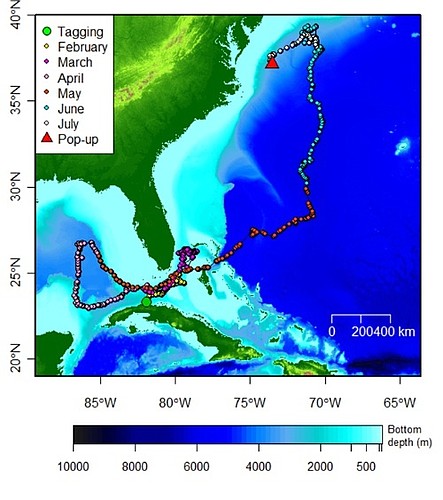- October 19, 2022
-
-
Loading

Loading

As part of the first-ever expedition to satellite-tag sharks in Cuban waters, Mote Marine Laboratory tagged a rare longfin mako shark on Feb. 14. The same shark was recently discovered near the U.S. Atlantic coast.
Scientists tagged the shark off the shore of Cojimar in northern Cuba. They also tagged three silky sharks in the Jardines de la Reina National Marine Park off Cuba’s south coast.
“Each tagging was a dream come true for the U.S.-Cuban scientific team that had worked for years to obtain permission and resources to place the first satellite tags on sharks of Cuba,” a Mote press release said.
Tagging the longfin mako shark was exciting for scientists because of the species’ rarity. The longfin mako generally lives in deeper waters, and there are many unknowns about the shark.
“There is a ton known about shortfin makos and almost nothing known about the longfin, which wasn’t described until 1966 by the Cuban ichthyologist Dr. Dario Guitart Manday,” Dr. Robert Hueter, director of the Center for Shark Research at Mote, said in the release.
The longfin shark, which was the second longfin mako tagged by Mote, is one of a very small group tagged worldwide. On July 15, the shark’s tracking tag separated form the shark, as it was intended to do, and floated to the surface and began sending data to Mote via satellite. Scientists found the shark went as far north as New Jersey in late June. It traveled 5,5000 miles in five months, averaging 36.5 miles per day.
The expedition was filmed by Tandem Skills + Motion, Inc. and Herzog Productions and was featured as part of Discovery Channel’s Shark Week in July. The channel will air the program, called “Tiburones: The Sharks of Cuba,” with updated findings at 7 p.m. on Aug. 30 as part of Discovery’s Schweekend.